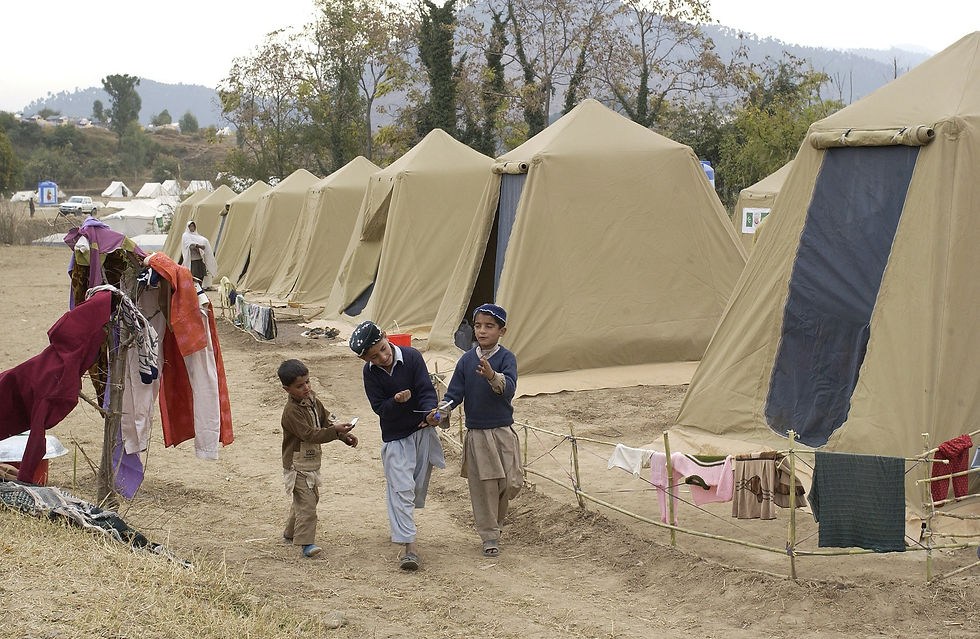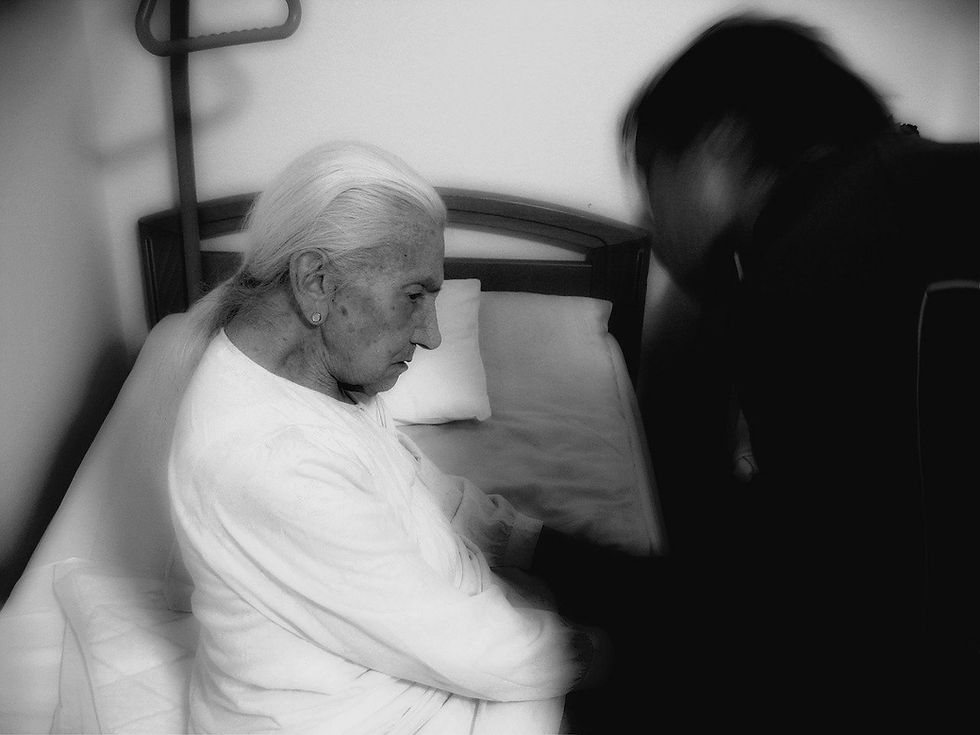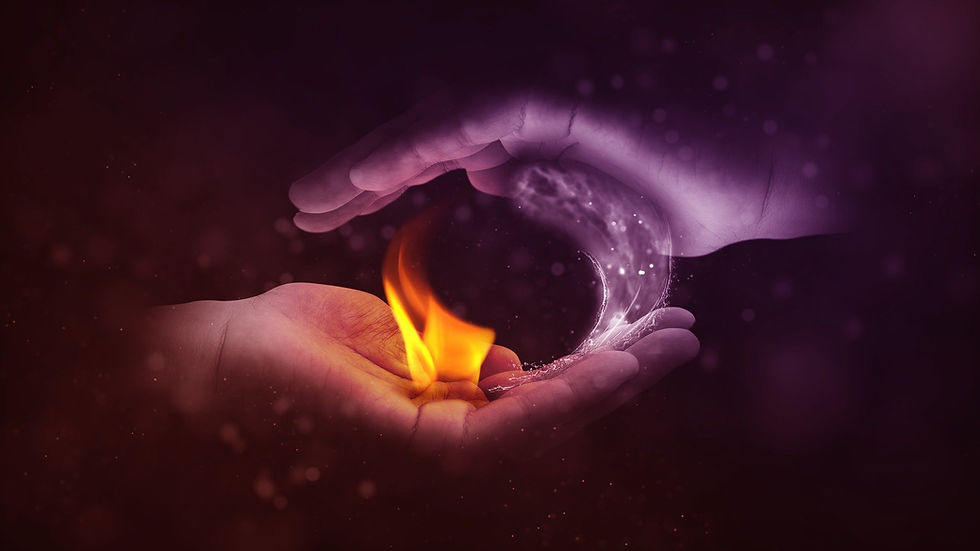Why Do I Feel Lost in My Grief?
- Amirah Ahmad Shah
- Feb 4, 2022
- 8 min read
Updated: Nov 28, 2023
Grief and Trauma is never neat or easily understood. We have various models that attempt to describe, understand, and treat complicated grief and trauma, but the reality is usually far from it.
In this article, I would like to get into the depths of grief and beyond. I will touch on how grief takes us to the bigger unresolved questions of life, what to expect in the reality of loss from an existential perspective, and how to deal with it if you choose to, or are forced to face it.
Now, if you learn best by reading, keep scrolling on. If you learn better by listening and visuals, click on this link where I deliver the information of this article on video:
It is very important to acknowledge and remind ourselves that the nature of grief has been well studied for centuries.
As many of you know, Grief can look like:
Denial
Anger
Depression
Acceptance
Guilt
Numbness
There are multiple models and understandings of grief out there.
But that is what they are, these theories and models give a dissected identifiable framework of the “possible” emotional turmoil, but it cannot illustrate the mess, predict the time, and lay out the structure of the emotional rollercoaster that grief takes YOU on.

In the modern world, thanks to many psychologists and psychotherapists, we understand grief in phases or stages that we go through where:
Grief is a singular event where you experience shock or denial, anger, sorrow. Eventually you get to acceptance, which is undeniably the hardest part of all.
The idea is for you make sense or meaning of the loss somewhere along the way, and move forward with life.
Firstly, let's briefly address the types of grief, then explore the depths of grief from a more personal angle. I also want to address what to really expect when facing loss, and how it can transform you.
To grieve is not just about the sadness you face when someone you love is no longer in your life, whether it is a relationship breakdown or a death.
We grieve over so many situations.
We grieve over our loss of friendships,
we grieve over our lives and how things were before Covid,
we grieve when we move cities or countries,
we grieve over our abilities- the loss of health, of cognitive or physical function.
But it’s not only our personal losses.
Loss is shared because we are social animals.
We are also greatly impacted when our loved ones lose their faculties.
We grieve together over financial losses,
the loss of livelihood,
independence,
sovereignty,
and freedom.


And while we grow to be resilient, many of these losses… are very hard to stomach.
Why is that? Why is something so universal and natural, still so difficult?
Because our sense of self is being challenged.
How we interact with the world is different. We are no longer the same person as we were before the loss, whatever the loss may be. We have been transformed by one of the most ubiquitous, universal experiences of humanity. And most of the time-
"Grief and loss happen to us."
We often don’t seek out for it. Because let’s face it, it sucks. It really hurts.
Physically.
Emotionally.
Mentally.
Soulfully.
Blame & Shame
A lot of the times grief and trauma evokes blame. We blame the actors involved, we blame ourselves, and our loved ones- for doing or not doing things.
We are ashamed of how we acted or did not act.
We don't feel like it we are worthy of grieving.
We don't give ourselves permission to grieve.
We compare or measure grief based on the length of a life.
We blame God.
We blame the universe.
It seems irrational.
Because we can-not and do Not want to comprehend how such tragedy is even imaginable. So, we are angry. We begin searching for answers, rationally and even spiritually.

And its a process that we must endure.
The existential torment, the rage, and the frustration-are almost like an obstacle course laid out before us. The worst part is, there is no way out- only through. If you skirt around it, then you suffer other complications that are associated with suppression. At this point, you have to allow yourself to feel the anguish, over and over again. For as many times, and however long it takes before finding that deeper sense of acceptance.
The Medical Experience
Reflecting back on my experiences of bereavement, I recall having multiple emotionally charges conversations with friends and family about the poor interactions we had with the medical community.
We realised that we were short of information, and falsely reassured of the mortality of my mother. Sometimes, in retrospect we realise how incapable we are to process information, and listen to our intuition in an emotionally stressful situation.
Things like confirmation bias and gas lighting get in the way, and it’s almost like we lack the capacity to even notice such things because of the love we have for who or what is at stake.
N.B. Bereavement is when someone you love dies.
Furthermore, when we are working against the Goliath of healthcare systems or oppressive individuals who have power over us, it is important to remember that we too are actors of our losses.
Always look for a second or a third opinion, even if it costs more, and even if it is outside of your insurance coverage. Because that peace of mind is invaluable.
If seeing a non-conventional psychotherapist allows you to 'speak the same language', to discuss things openly and be taken seriously, despite how incredulous your thoughts may sound, go for it.
If seeking alternative therapies is something that’s on you mind, explore it.
If spirituality is a dimension that is fertile ground for your existential inquiries, explore it with as many people, and as much literature you can get your hands on.
As Nouman Ali Khan says,
"Regret is a form of punishment itself."
So try your best not to stumble into its jagged teeth.
Growth
Another important thing I want to highlight is akin to post-traumatic growth.
At some point, taking a different lens, or perspective, can cause your ego to take a hit.
However, sometimes that is what needs to happen to heal. There's no map to grief. There are some common universal patterns, but there is no comprehensive manual to guide you through it.
All you have is the day that presents itself. You cannot really predict what the universe is going to throw in your way. Eventually, if you allow yourself to face the pain along with the facts and the fluctuating circumstances, you may be able to hoist yourself up to a higher level of spiritual understanding - towards acceptance.
The truth of the matter is, All these things are constantly battling with the situation to have it take shape, and it's like you're almost helpless in giving a direction.
Surrender
This helps us consider the concept of surrender. It is when you realise you can no longer control the grief and the loss, so you allow the higher universal powers take
charge of this and see where it leads you. A good question to reflect upon this is:
How can I transcend this pain to a higher level of spiritual understanding?
After a while, you might realise that surrender is quite a peaceful place to be. Having said that, be mindful that you should not avoid your responsibility to process the hardship, but rather to see how far your agency can go, and relinquishing yourself from the burden when objectively, you know that there is nothing much you can do.
I would like to reiterate that recovery differs for everyone. Why?
Well, It all depends on a few things like:
Your past experience.
Your cognitive abilities,
Your spiritual abilities and beliefs,
Your experience was in tapping into things that have made you happier,
And your strengths, that have helped you overcome things in the past.
Acceptance
Ultimately, it is about having a...
Deep acceptance of the duality of nature of life, and death
Deep acceptance of the duality of a beginning and an end
Deep acceptance of the duality of health and sickness
Deep acceptance of the limits of our own comprehension and agency.

Triggers
Another thing to note is that there will be triggers. These triggers will show up in the least places you expect them. I recall at my mother’s funeral, an old friend of mine who came to pay his respects (he had also lost his mother), shared that being triggered randomly was only piece of advice he had for me. I did not understand what he meant at the time because I was consumed by grief. However, it began to make sense in the coming months and years.
When life goes on, there will be the most unexpected spells of grief that happen out of the blue from a random trigger. For me, it was mother and adult daughter walking together on a bridge, a bridge I had often envisioned walking with my mother. At this point, I felt the grief from the loss of a future, and sharing with my mother.
As I learned more about the nature of grief, I realise that this is common phenomenon.
Again, we could try reframing this as another small lesson in my progress towards a final state that might never be reached. And that final state called is acceptance.
I have shared bits and pieces of my journey but I cannot claim that I have reached a complete state of surrender and acceptance.
It is a working progress. There have been, and will continue to be speed bumps along the way. And to me, that is becoming more normal. But, it is comforting to know that surrender and acceptance is the general direction I should go towards.
Empathy & Healing
Finally, I find that being a grief and trauma therapist, by helping others with their emotional wounds has also had a powerful healing impact on mine. And I simultaneously draw upon my own wounds as a source of empathy, true understanding, compassion and forgiveness. In Brooke Lilith's words,
“To heal thyself, embrace your wound as your sacred teacher.”
There is a lot of science and spirituality behind healing yourself whilst healing others, but I will not get into that here. What I will say is that:
It is a pleasant surprise (as pleasant as surprises can be in loss)
I never feel alone in my struggles, and I constantly feel grateful for having the love and memories that I have had. I find that I am also able to treat myself gently and with compassion, as I do with others.
Therapy
While grief and loss is takes a natural course, sometimes we need to process the loss on different levels, rationally, or spiritually. We may need to talk about the same thing over and over again, and we might not feel comfortable doing that with the people we know.
Other times, when the grief is traumatic, our psychological health can be greatly impacted for extended periods of time. If you:
think your emotions or physical symptoms are too intense or persistent,
feel too numb, cut off, or you have to keep active in order not to feel anything,
continue to have nightmares, poor sleep or flashbacks,
experience loss of memory and concentration, and have increased accidents or illness,
increase your smoking, drinking or drug taking,
have no-one to talk to about your experiences,
have thoughts of harming yourself or others,
have lost faith in yourself or the world, seeing a therapist or a counsellor can be very helpful.
Grief and loss can be a dark place to be in. One that lacks lustre, and colour. A grief therapist has the expertise to help you cope with grief, address the key issues, and provide you with the warmth, comfort and safety you need in your most vulnerable state. And most importantly, to bear witness to the pain that you are enduring.
If you would like to connect with me, you can drop me a message through this website: https://www.aroad2recovery.com
To support someone in grief, refer to:
Some useful websites on grief literature are listed below.
Sources








Comments